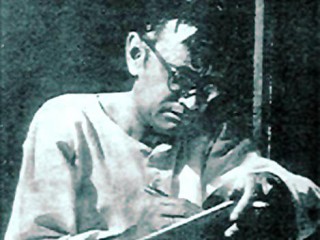
Saadat Hasan Manto biography
Date of birth : 1912-05-11
Date of death : 1955-01-18
Birthplace : Samrala, British Punjab
Nationality : Hindi
Category : Famous Figures
Last modified : 2010-10-22
Credited as : Literary figure, Urdu poet,
0 votes so far
During his career, Manto wrote more than two hundred stories and a number of essays, film scripts, and radio plays. However, his greatest contributions to Indian literature were his mastery of the short story genre and his use of the Urdu language. Some of his well-known Urdu short stories include "Bu", "Khol Do", "Thanda Gosht", and "Toba Tek Singh," that were promptly translated into English after Manto 's death.
After the partition of India, Manto left his home in Mumbai and migrated to Lahore, Pakistan, in January 1948. Although Manto 's last years in Pakistan were filled with financial hardship and failing health, they were also instrumental in the compilation of some of his greatest literary achievements. Manto died of excessive drinking that led to liver cirrhosis, in the year 1955. His death has left a vacuum in the South Asian Literature genre that is still vacant.
















